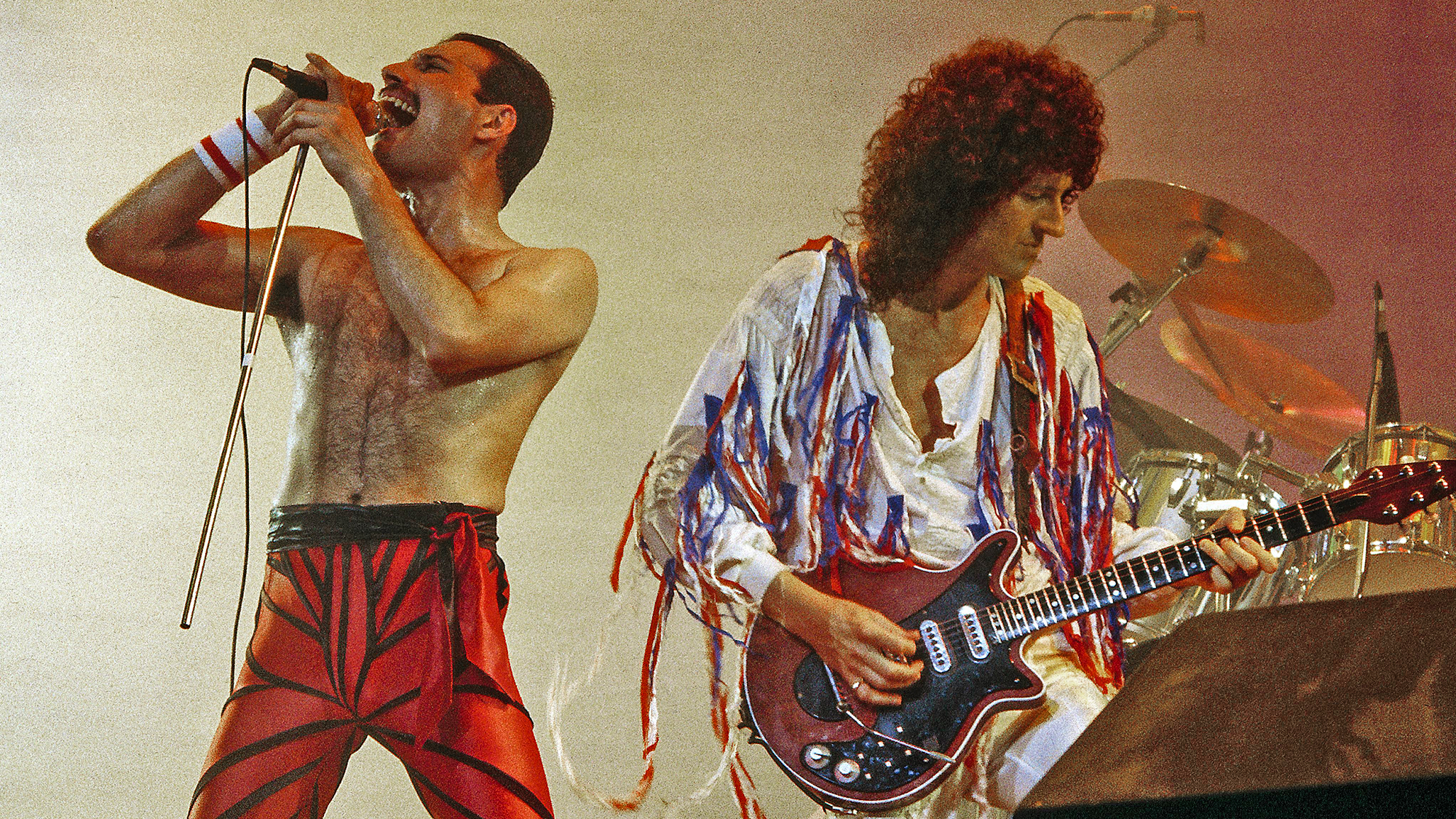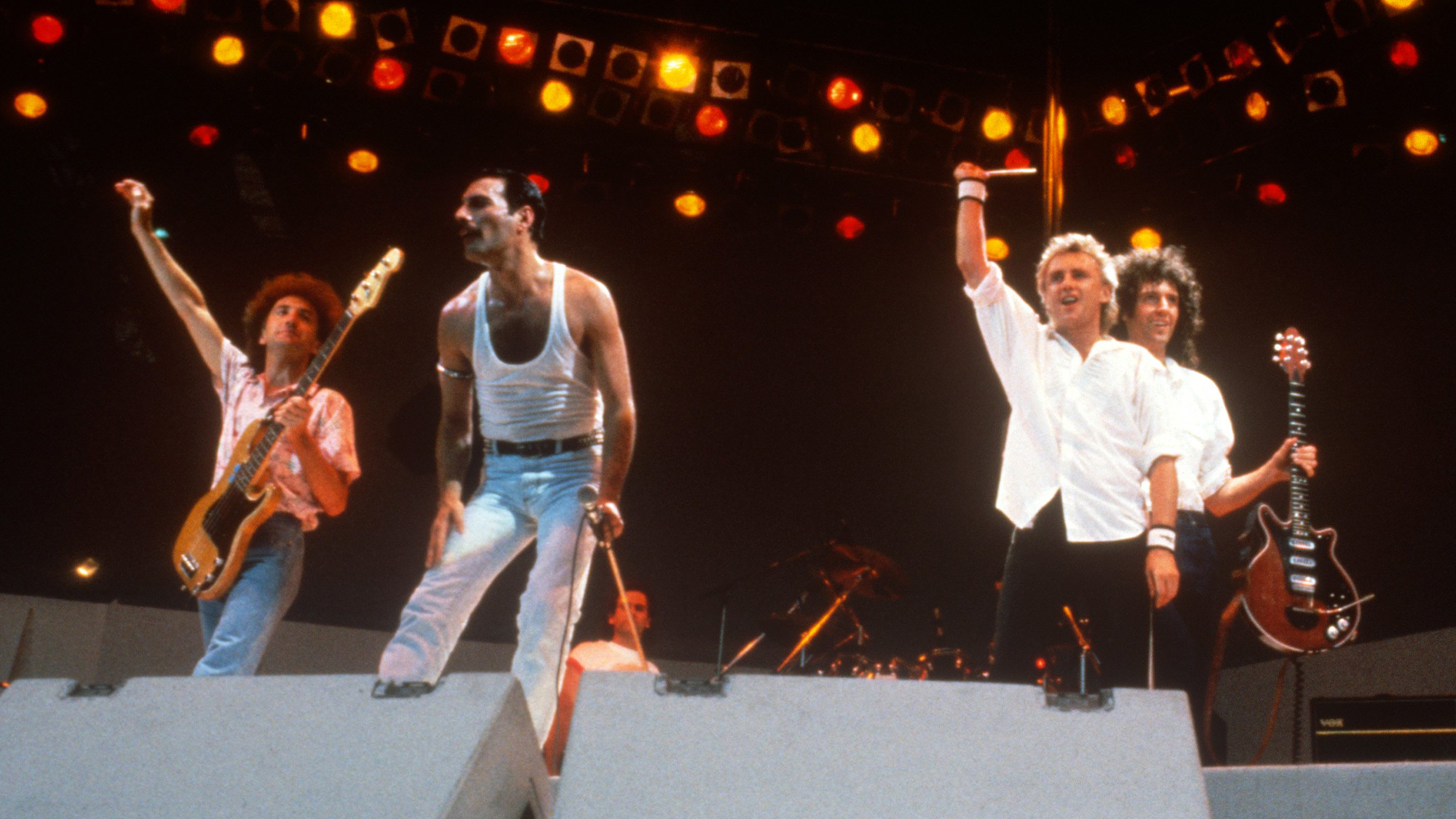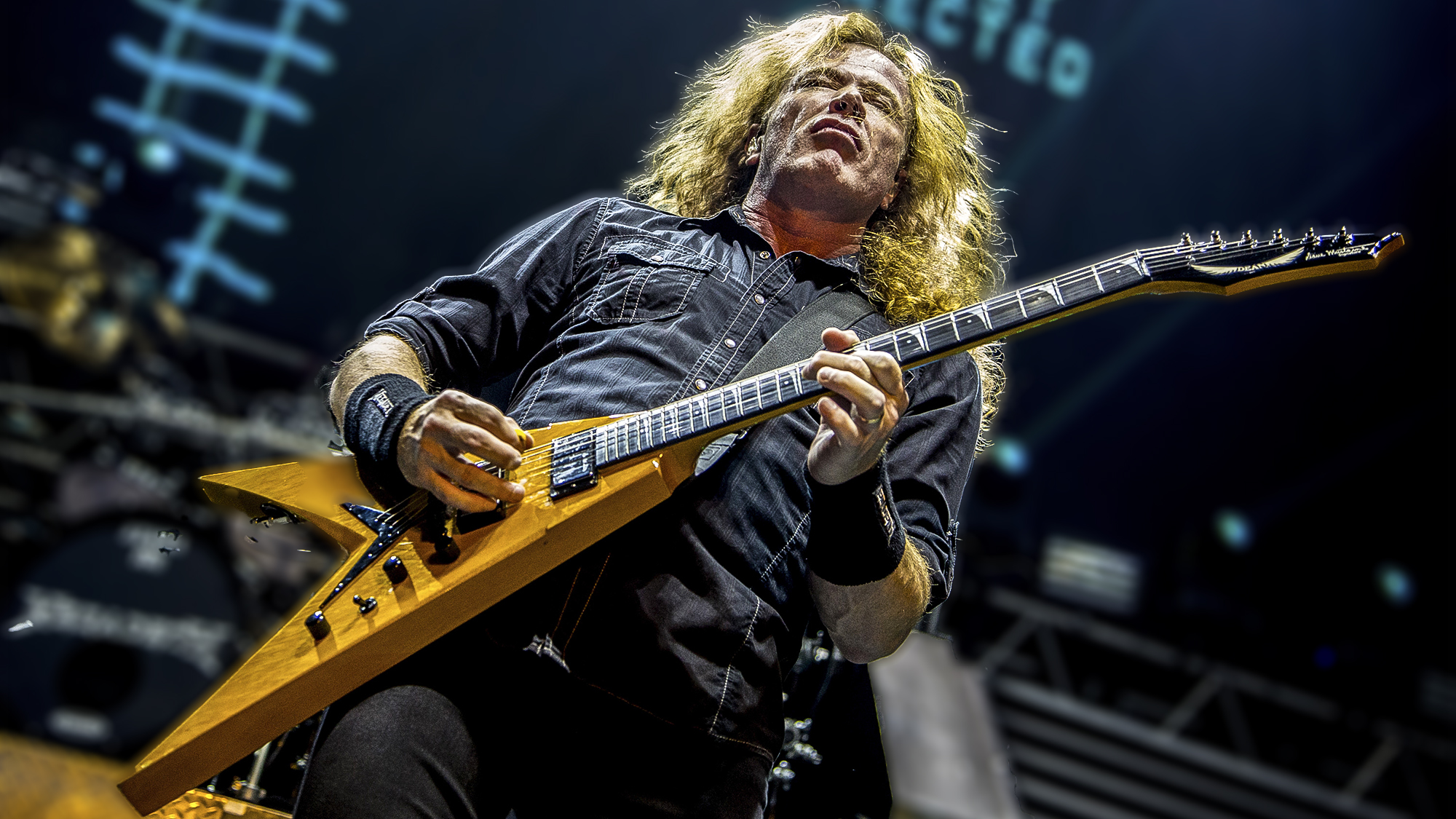“As soon as he did it, that was it — the place imploded.” Brian May on the time Freddie Mercury shocked Queen onstage — and stole the spotlight from the biggest show on Earth
Queen were a late addition to the star-studded lineup. But Mercury’s viral moment made them the one act everyone was left talking about

When Bob Geldof planned the lineup for his historic Live Aid concerts in 1986, one of the biggest bands of the previous 10 years was nowhere to be found on it: Queen.
The former Boomtown Rats singer had managed to pull in some of rock’s biggest acts — including the Who, Led Zeppelin and Bob Dylan — as well as crowd pleasers like George Thorogood, who represented rock's traditional roots (and was a favorite of show host Jack Nicholson).
But as far as Geldof was concerned, Queen’s “star had risen and fallen,” he told CBC Radio Canada.
“I was asked to call them and get them to do it,” he said “Frankly, I didn't care because if you want one word to explain why punk happened: Queen."
The group’s increasingly lavish productions during the mid 1970s had made them one of the acts many punk acts singled out for turning rock and roll into a bloated parody of itself. Brian May’s increasingly advanced electric guitar excursions had become passé by the mid 1980s. Even Queen recognized this, as they added synthesizers and disco rhythms to their music in an attempt to stay relevant.
But no matter what Geldof thought of the group, promoter Harvey Goldsmith was pushing for Queen to perform, and Geldof decided he would get them, come hell or high water.

There was only one problem: Queen had just finished a punishing world tour and weren’t very interested in the show. Freddie Mercury had gone off to work on a solo album, and drummer Roger Taylor and manager Jim Beach told Geldof the event wasn’t the type of thing Queen did. Even so, Beach agreed to broach the subject with Mercury.
All the latest guitar news, interviews, lessons, reviews, deals and more, direct to your inbox!
A few days later, Geldof’s phone rang. He recalls hearing Mercury’s voice on the other line asking, “’So what's all this about, darling?'"
The conversation didn’t go well until Geldof got the bright idea to blow some proverbial smoke up Mercury’s backside.
"I said, 'Listen, Fred, honestly, if there was ever a stage built for you, this is it,'" Geldof recalls telling the singer.
"And he said, 'Well, what do you mean?' And I said, 'Well, darling, the world!'
"And there was this pause, and he said, 'I think I know where you're coming from.'"
We didn’t plan it. It was always up to Freddie, whether he wanted to do it, and he just felt confident that it was the right moment.”
— Brian May
Queen signed on for a 20-minute set that would feature their biggest hits: “Bohemian Rhapsody,” “Radio Ga Ga,” “Hammer to Fall,” “Crazy Little Thing Called Love,” “We Will Rock You” and “We Are the Champions.”
As “Bohemian Rhapsody” segued into “Radio Ga Ga,” the crowd clapped along with Mercury, who suddenly led them in an astonishing call-and-response. He launched it spontaneously with a sustained “Aaaaa-yo,” a shout that’s become remembered as "The Note Heard Round the World.”
Geldof recalls that he was making his way to the BBC studio at the top of Wembly Stadium when he heard “this astonishing sound.”
It was a remarkable moment of spontaneous synchronicity. Mercury tapped into the energy of the crowd and channeled it right back at them. In that one magical moment, it felt like everyone in the place united in celebration.
As May told The Guardian in July 2023, no one in the group had any idea what the singer had planned — or if he even did plan anything.
“No. Absolutely no inkling whatsoever,” he said. “We didn’t plan it. It was always up to Freddie, whether he wanted to do it, and he just felt confident that it was the right moment.
“Freddie did have an aptitude, it has to be said — he just could connect. He connected with everybody. As soon as he went, ‘Ay yo,’ that was it — the place imploded. I can remember looking over at Roger, thinking, seems to have worked!”
As far as Geldof is concerned, Mercury’s stunning moment helped Queen win the day. Many fans agree. For May, it was a strong confirmation of the group’s power and popularity during a time of uncertainty.
“It did feel different because it wasn’t a Queen audience — all of those tickets for Live Aid were sold before we were announced on the bill — yet they’d still reacted that way,” he says. “To see that happening sent big chills up my spine.”
Christopher Scapelliti is editor-in-chief of GuitarPlayer.com and the former editor of Guitar Player, the world’s longest-running guitar magazine, founded in 1967. In his extensive career, he has authored in-depth interviews with such guitarists as Pete Townshend, Slash, Billy Corgan, Jack White, Elvis Costello and Todd Rundgren, and audio professionals including Beatles engineers Geoff Emerick and Ken Scott. He is the co-author of Guitar Aficionado: The Collections: The Most Famous, Rare, and Valuable Guitars in the World, a founding editor of Guitar Aficionado magazine, and a former editor with Guitar World, Guitar for the Practicing Musician and Maximum Guitar. Apart from guitars, he maintains a collection of more than 30 vintage analog synthesizers.
